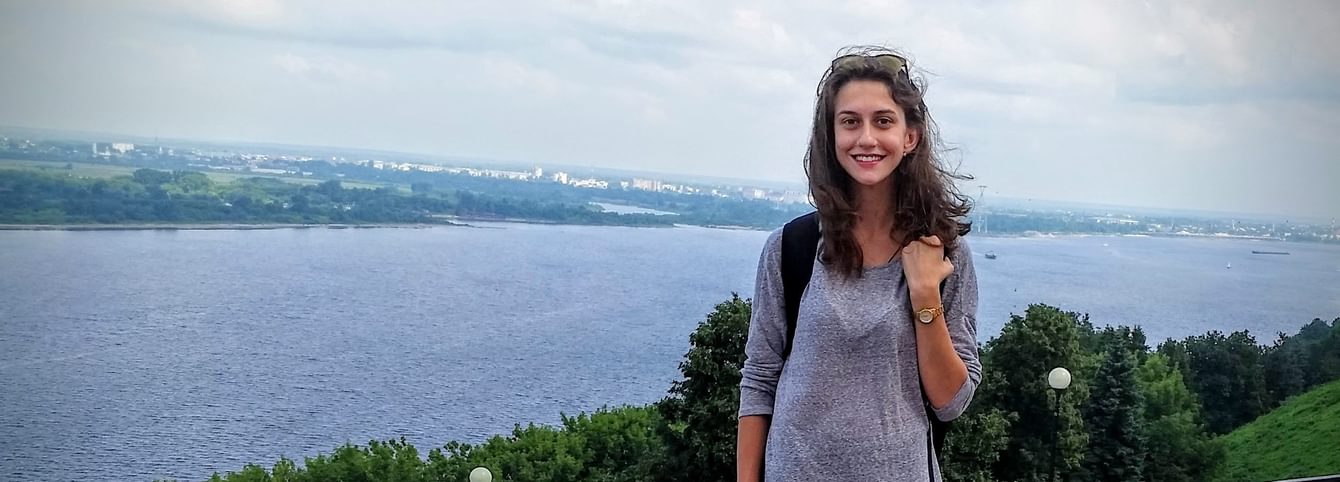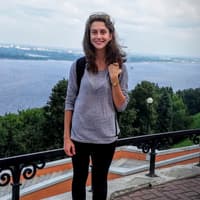Maria Folvarska
Maria Folvarska is an alumna of the 2016 CLS Russian program in Vladimir, Russia. She is currently a senior at the University of Illinois at Chicago majoring in history and mathematical computer science and minoring in French and Russian. She moved to the United States from Slovakia with her family when she was two years old and grew up in the suburbs of Chicago. When Maria is not studying or working, she loves solving puzzles of all kinds, hiking, gardening, and spending time with friends and family.
Why Russian?
Coming from Eastern Europe, I’ve always been interested in exploring my Slavic roots. Pursuing Russian was a way for me to achieve this. Moreover, the Russian language has allowed my historical research to flourish as it has opened new avenues of primary and secondary sources that I would have otherwise been unable to linguistically access. As you can tell from my two majors — history and computer science — my professional goals are still in the process of being explored. I do know that I plan to use Russian daily in my future pursuits.
Common Roots
Specifically as someone with Slavic background it was amazing to be in Russia. Every day, I would compare and contrast Russian culture to Slovak culture or Rusyn culture – some things were very similar, others were completely different. One thing in particular that mystified me was when I realized during our folklore class that one of my favorite Slovak childhood songs/games, called zlatá brána (golden gate), had a version in Russian: Золотые ворота. For days afterwards I wondered whether something I had assumed to be Slovak in origin had truly originated from the historic Golden Gate landmark in Vladimir.
Cultural Immersion
During my time in Russia, my host mom planned a small celebration for her birthday in our apartment. As we were all sitting along an exquisitely prepared table overflowing with my host mom’s superb cooking, each guest gave a toast and we all took a sip of our wine in honor of it. I took this moment in, observing this special tradition. Eventually, everyone at the table had spoken, and all eyes turned to me. I panicked a little. I wasn’t expecting to be a part of this procession of toasts. I looked at my host mom and began speaking to her. Although, my Russian wasn’t as eloquent as that of the professors I was sitting with, I moved my host mom to tears with my expression of gratitude for her kindness and generosity. Accordingly, this birthday celebration was a significant moment for me – it made me realize the power in the gesture of speaking in Russian. It also made me realize that no longer was I solely an observer of Russian culture as I was in the US, I was now practicing it.
Words of Wisdom
I would definitely recommend others to study Russian, as it opens the door for opportunities in Russia as well as opportunities in Eastern Europe and Central Asia. Moreover, learning Russian helps break this invisible wall we have built between the United States and the former Soviet Union. My favorite Russian word is гулять, which means to walk or to hang out. In Vladimir, I would always go on walks with my language partner and friends. As we walked, we talked – we discussed Russian and American culture, education, and the simple trivialities of daily life. It was a wonderful feeling to just roam around and bond not only with my new friends, but also my Russian host city, which shall forever remain special to me.



